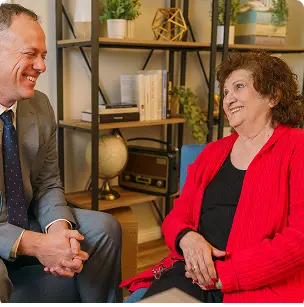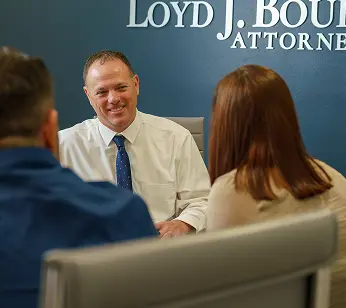
If you’ve been in a car wreck, one of the first questions may be: What is conservative care? Conservative care means using non‑surgical treatments to help your body heal. At LJBLegal, we want you to understand your options. As a Louisiana car accident lawyer, we know choosing the right care early can affect how much you recover, not just physically, but also in your legal claim.
What is Conservative Care?
Conservative care means using non-surgical treatments to ease pain, restore movement, and help the body heal naturally. The goal is to treat the injury without unnecessary procedures, giving the body time and support to recover on its own.



We GET IT DONE
Clients trust us to handle their case properly and effectively
FREE Confidential Case Review (985) 240-9773What Does Conservative Care Include?
Conservative care covers many different kinds of treatments. These help reduce pain, improve motion, and make daily life easier—all without surgery. Here are common options:
- Chiropractic Care: Spinal adjustments and manipulations to ease stiffness in your back, neck, or other areas. It may also include work on joints and muscles near the spine.
- Physical Therapy / Rehabilitation: Exercises, stretches, and treatments guided by a therapist. These help restore strength, flexibility, balance, and motion in body parts injured in the crash.
- Therapeutic Modalities / Passive Therapies: Methods like massage, heat or ice packs, ultrasound, or electrical stimulation. These usually help with pain relief and reducing swelling or muscle spasm.
- Medication: Over‑the‑counter pain relievers or anti‑inflammatories. Sometimes prescription medication is necessary if pain or inflammation is severe enough.
- Activity Modification & Self‑Management: Advice on changing daily habits (posture, how you sit, how you sleep, what movements to avoid temporarily) to protect injuries and support healing.
- Bracing, Taping & Supportive Devices: Use of braces, supports, or special taping to stabilize injured parts, reduce strain, and allow healing without surgery.


We DO THE RIGHT THING
The correct choice – always – is to do the right thing.
FREE Confidential Case Review (985) 240-9773When Is Conservative Care the Right Option?
Here are the usual situations when conservative care is an appropriate choice:
- For soft tissue injuries (sprains, strains), whiplash, and minor tears in muscles or ligaments.
- When surgery is not clearly needed, conservative care is often tried first because it is less risky and cheaper.
- For chronic pain or recurring symptoms, when you want to avoid repeated or more invasive procedures.
- As part of recovery before or after surgery to improve the outcome or lessen the recovery time.


We ARE TRANSPARENT
We don’t play games and we don’t hide the ball.
FREE Confidential Case Review (985) 240-9773Why Choose Conservative Care After a Car Accident?
There are important reasons conservative care is often the first step after a car accident:
- Non‑invasive: No cuts, stitches, or surgical risks like infection or complications from anesthesia.
- Lower cost and risk: Generally cheaper and safer than surgery; less recovery time if no surgical side‑effects.
- Supports natural healing: It helps your body heal itself—using rest, proper movement, and therapies.
- Can avoid or delay surgery: Many people improve enough that surgery becomes unnecessary.


We ARE COMPASSIONATE
Emotionally intelligent listeners with positive attitudes.
FREE Confidential Case Review (985) 240-9773When Might Conservative Care Not Be Enough?
Unfortunately, conservative care doesn’t always fully fix serious injuries. Surgery becomes necessary in these cases:
- Structural damage that won’t heal without intervention (e.g. major fractures, torn tendons or ligaments beyond a certain point).
- Nerve compression that threatens permanent damage (for example, loss of feeling, weakness, or risk of paralysis).
- Persistent pain and loss of function even after a good trial of conservative treatments.
- When medical imaging or specialist evaluation reveals a condition that surgery handles better than non‑surgical care.
How Does Conservative Care Affect a Legal Claim?
At LJBLegal, we know every treatment you get after an accident matters in your personal injury claim. Here’s how conservative care fits in:
- Documenting your conservative care helps prove your injuries are real, serious, and connected to the wreck.
- Medical bills from conservative care are part of your damages. If you don’t pursue reasonable treatment, insurance adjusters may argue your damages aren’t fair.
- Insurance companies often want to see that conservative care has been tried before agreeing to higher compensation. If surgery was needed immediately, we’ll show why in your case.
- Under Louisiana law, recent changes require stronger medical evidence showing your injury came from the accident. Conservative care records can help establish this causation.
It’s also important not to accept a settlement until you’ve reached maximum medical improvement (MMI). This means your condition has healed as much as it can with treatment, whether that ends in full recovery or long-term effects. Settling before you reach MMI can leave you without enough compensation to cover future care, ongoing pain, or permanent changes in your ability to work or live comfortably.
How Can LJBLegal Help You Use Conservative Care to Your Advantage?
You deserve to be treated fairly, physically and financially. Here’s how LJBLegal stands with you:
- We work with trusted medical experts like chiropractors, physical therapists, and pain management doctors to make sure your conservative care is strong, documented, and tailored to your injury.
- We keep detailed records of your treatments, how your pain or function improved, or didn’t improve. This matters for proving damages.
- We push for every medical expense related to reasonable conservative care in your settlement. Insurance may try to argue some treatments weren’t necessary. We fight that.
- If conservative care fails, we prepare evidence for surgical options so you can still recover what you need. We don’t give up just because surgery becomes needed.
What Should You Remember About Conservative Care?
Here’s what you should remember about conservative care after a car accident:
- It refers to non‑surgical treatments used to relieve pain, increase function, and allow your body to heal.
- It includes things like physical therapy, chiropractic work, medications, braces, and lifestyle changes.
- It’s often the first option but not always enough. Some injuries require surgery.
- Your legal recovery depends on how well your care is documented and tied to the crash.
- With LJBLegal, you don’t just get care. You get a team of Louisiana personal injury lawyers that fights to make sure you are not short‑changed.
| Related Links: |















